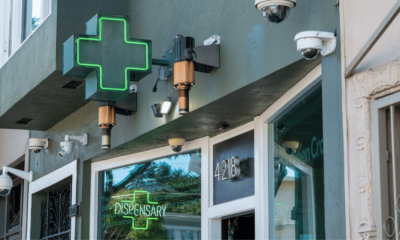Currently, Facebook doesn’t allow any advertising of CBD products, even if they’re legally allowed to be sold.
What does this mean, exactly, for CBD companies, and are the rules likely to change any time soon?
Here, experts in the field of digital marketing for CBD products weigh in on the issue.
What are the current laws around what you can and can’t advertise on Facebook when it comes to CBD products?
Kristina Spionjak, marketing director, London Canna Group, says: “According to Facebook’s Ads Policies on Drugs & Drug-Related Products, ‘Ads must not promote the sale or use of illegal, prescription, or recreational drugs’. While most people might think that CBD is not a drug, Facebook treats the product as one.
“Therefore, Facebook does not allow its advertisers to directly feature CBD in an ad, just as the platform does not allow advertisers to promote alcohol sales. However, advertisers are allowed to run ads for topical hemp across Facebook.”
Brett Konen, marketing manager at PrograMetrix, says: “In our experience, CBD ads currently get rejected as illegal products and services, but that may vary given that rejections are generally decided by bots crawling the ad creative and associated landing pages.”
Why does Facebook does not permit any form of advertising or ‘promoted posts’ from the legal cannabis industry, despite the fact that CBD is legal?
Gilbert Corrales, CEO at Leafgrow, says: “It’s a combination of things. The taboo around it and connotation for recreational uses of it, even in the US were recreational use is permitted you’re still not allowed to advertise, and you could argue there’s no robust scientific evidence behind it. I think it’s just easier for Facebook to have a blanket ban.”
Does this mean companies who offer CBD products also can’t advertise non-CBD-related products?
Spionjak says: “Advertisers can run ads that direct to landing pages that feature ingestible hemp and topical CBD. But the ads cannot specifically feature those products. Facebook is still prohibiting ads for ingestible CBD, including ads that direct to landing pages with those products.”
According to Louise Winwright, CDO at The C* Word: “You have to ensure that landing pages are kept free of restricted products, and that the website is not primarily selling CBD.
So, a company called We Sell CBD probably wouldn’t be able to advertise. A company called ‘We Sell Botanical Skincare’ who has one CBD product on their site and only advertises other products on Facebook, probably would.
Konen says: “Companies who offer CBD products should be able to advertise non-CBD-related products on Facebook, but since Facebook’s bots crawl the landing page associated with the ad creative, the ads may be rejected if the bots find evidence of ingestible CBD on the website associated with the campaign.”
Are there any ways companies can get around the guidelines and advertise their CBD products?
Corrales says: “We’re working with a client right now with an idea to get people to buy a product that isn’t CBD, and use the post-purchase experience to introduce people to the CBD side of things by setting up new shop selling products aligned to CBD, then introduce the CBD side of things afterwards.
Konen adds: “While it should be noted that there is currently no method that guarantees CBD ad acceptance, we recommend that our clients build a gated landing page to go with their ad campaign, omitting any mention of CBD and replacing it with wording like “natural plant-based remedies.
“When the ad creative and targeting for the campaign is done correctly, your audience will likely already know what you’re talking about when they reach that gated landing page.
“If the gated page is approved for the ad campaign, you can go back in after a few days have elapsed and add a link through to your main website. Note that there’s still no guarantee the ad won’t be rejected later, regardless of initial approval.”
Spionjak says: “Social advertising may be limited for hemp and CBD companies. However, there are other online marketing channels that can be just as effective if not more, with a better return on investment.
“We would recommend CBD and hemp companies to invest in professional website, complete business listings, review management, text message and email marketing, affiliate marketing, influencer marketing, native advertising, SEO and digital PR.
“A combination of these marketing techniques can help businesses gain customers who are searching for these products.”
Do you think Facebook’s regulations will change any time in the future?
“The pressure for Facebook and other platforms to change their advertising policies is increasing,” says Spionjak.
“I believe they will change their regulations when governments agree on how to regulate the market.”
Konen says: “I believe that Facebook will open its doors to CBD advertising the moment that US and UK laws make its legality clear, whether that means specifically legalizing CBD ads or legalizing cannabis as a whole. Facebook is not generally a platform to turn its nose up at new streams of ad revenue.”
Winwright says: “It’s highly unlikely, but never say never!”

 News6 months ago
News6 months ago
 Science5 months ago
Science5 months ago
 Industry6 months ago
Industry6 months ago
 News6 months ago
News6 months ago
 News5 months ago
News5 months ago
 Health5 months ago
Health5 months ago
 News5 months ago
News5 months ago
 Health3 months ago
Health3 months ago












